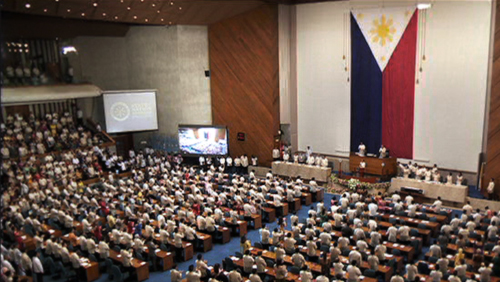If the state-run Philippine Amusement and Gaming Corporation (PAGCOR) can afford to buy 18-karat gold memento rings for its loyal employees, surely it can also pay the PHP21 billion (US$393 million) it owes the government?
 This was the question raised by Philippine Commission on Audit (COA) as it demanded that the gaming regulator pay billions of pesos it owes the government, according to The Philippine Star.
This was the question raised by Philippine Commission on Audit (COA) as it demanded that the gaming regulator pay billions of pesos it owes the government, according to The Philippine Star.
In its latest report, COA claimed that PAGCOR erred in computing the amount of money it remitted to the government over the past seven years. Under the Philippine law, the national government received 50 percent of the state gaming firm’s “aggregate gross earnings.” That money would, in turn, be allocated for the government’s infrastructure and socio-civic projects.
However, the auditors found that PAGCOR based its computations on its gaming operation earnings and not on its entire income. The computation errors that PAGCOR made from 2011 to 2017 denied the government billions of funds, according to COA.
COA pointed out that PAGCOR also owed the Philippine Sports Commission a total of PHP1.631 billion ($30.5 million) as a result of the wrong interpretation of gross income.
“The COA Audit Team also continues to hold its stance that the 50 percent government share should be computed based on the entire income of PAGCOR and not only on income from gaming operations,” the COA said, according to the news outlet.
PAGCOR’s “excessive” spending also caught the state auditor’s attention. In its report, COA flagged the unauthorized allowances, cash grants and 18-karat gold rings that PAGCOR gave its employees.
The audit team found that the regulator gave out “loyalty cash awards” worth PHP 12.5 million ($233,736) to its officials and employees who rendered 5, 10, 15 and 20 years of services. As an added bonus, PAGCOR reportedly gave employees with 20 years of service 18-karat gold memento rings. The rings were bought for a total of P13.02 million ($243,460).
According to COA, these grants were “in excess of the amount allowed in COA Circular No. 2013-003A dated September 18, 2013.”